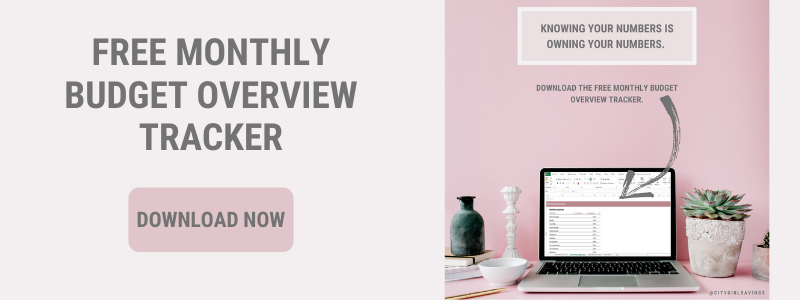I’m proud to say that I’ve crushed and maintained the 800+ credit score mark for over 5 years now. What helped me get to an 800-credit score is not the same as what’s helped me keep it! There have been random months where my score would take a hit (for example, when I paid off my car loan early), but overall, I’ve found the secret to keeping a credit score above 800!
If you’re looking to give your credit score a boost, and hopefully get to the 800-club yourself one of these days, then you’re in the right place! I’m sharing 5 tricks that have helped me keep my credit score above 800 for years.
5 Tricks to Keep My Credit Score in the 800s
#1 Pay Your Balance Down to Zero (just once)
You may remember from CGS Podcast Episode 15 – My Debt-Free Story and Biggest Takeaways that the biggest contributor to my score finally reaching 800+ was when I paid all my credit balances to zero. I had been carrying debt for so long that when the balances reported $0, my credit score saw the biggest jump.
That initial action of getting all of my balances down to $0 allowed me to be more flexible with balances in the future. Since that initial debt payoff, there have been times where I’ve taken advantage of 0% interest and carried balances. My score still stayed above 800 with those lingering balances. I eventually get outstanding balances back down to zero, but that first initial pay-off run had the biggest impact.
#2 Always Pay on Time
Another reason my credit score stays about 800 is because I never miss a payment. In fact, if I were to have a late payment reported now, it would have a tremendous negative effect on my score. So, I can never let that happen! Obviously, life happens and sometimes we forget, but payments are considered late 30 days after the due date. Sure, you may be charged a late fee the next day, but you won’t be reported late until 30 days after the payment date.
There should be NO reason for any of us to pay 30 days late. If you have a budget plan and track your spending, you’ll be able to quickly see that a credit card payment didn’t come out. Once you have late payments reported, it can keep your score from hitting the 800 mark until enough time has passed.
#3 Spread Out Opening New Credit Accounts
Did you know that if you open too many new credit accounts in a short amount of time your score will be negatively impacted? I learned that early on in my credit journey. I opened a bunch of store credit cards in a short amount of time. I wasn’t monitoring my score back then, but I know it wasn’t a smart move. Now, I don’t often open new credit accounts, but if I do and they’re too close in open dates (usually within a year), I’ll be notified of a score impact.
However, the impact is minimal and usually stays above 800. If it doesn’t, it goes back up in the next 1-2 reporting cycles. This is because my balances stay low, if not $0, and I don’t have any late payments reported.
#4 Switch Off Using Cards and Keep Utilization Low
Have you ever noticed that if you don’t use a card for a long period of time, the credit card company will reduce your credit limit or close the card? Account closures impact your credit. Although your report will show that the credit closed your account, it can still have a negative impact – especially if it’s an old account. That account no longer has credit history being monitored.
To avoid account closures and credit line decreases, I rotate using my credit cards. I’ve accumulated quite a few over the years, so I switch off using them for one-off purchases. I track the purchases in my budget and make sure to pay the credit card off during the next statement cycle.
One thing I never do is exceed 15% of my overall credit utilization. Most experts recommend keeping it under 30% utilization. However, that’s not per card, that’s total. If you haven’t paid your debt balances down to zero, keeping a 30% or less utilization isn’t as helpful. Pay the balances off completely, then maintain a low utilization. Your score will stay higher this way.
#5 Request Credit Limit Increases Once a Year
Even though I don’t carry balances and I keep my credit utilization very low, I still request credit limit increases every year. Sure, I don’t need the higher credit limit, but it’s great to have. If I ever do need to carry balances, the higher my total credit limit, the higher my utilization can be and still stay under that 15% mark.
I don’t always get approved for increases, and that’s okay. You don’t get what you don’t ask for! Some companies make it very easy to request an increase. You can do it directly through their app. Make sure you don’t request too many in a short amount of time. That may raise red flags. I’ve found once a year, per card is a good cadence to follow.
Related: 6 Things to Remember When Tracking Your Credit Score
It’s much harder to reach an 800-credit score than it is to keep it! Once you’ve gotten past that 800-mark, you’ll be able to maintain it much easier. As long as you’re following my tricks above! Unfortunately, one late payment or too many high balances can drive your score down. It’s an art and a science, but once you get the hang of it, you’ll be golden!
Are you focused on building up your credit score? What has made the biggest difference for your score so far? Share your thoughts and questions in the Comments section below!
-Raya
The CGS Team






